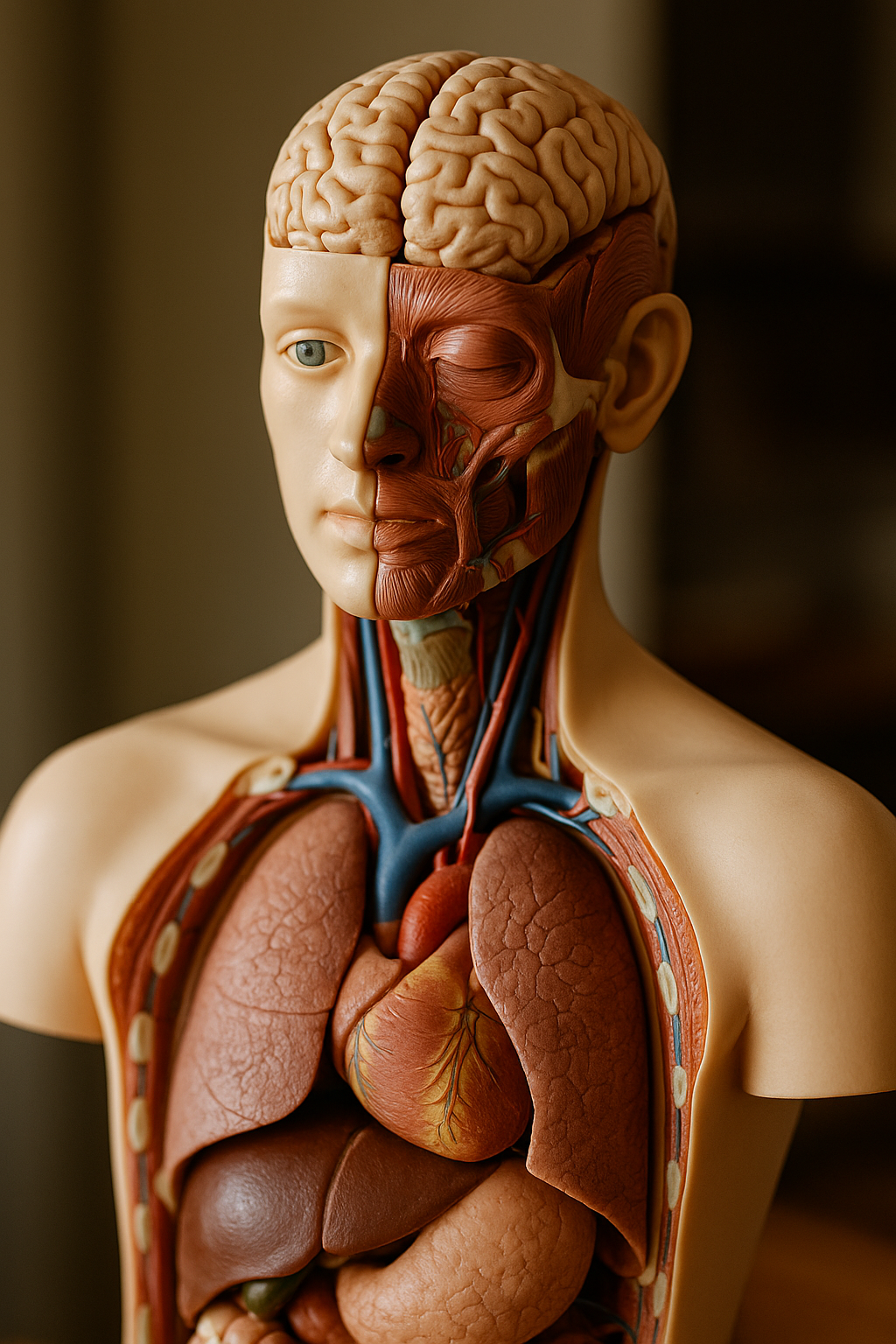The human body is a masterpiece of complexity, precision, and adaptability. While many of us are familiar with the basics of how our bodies function, there are countless lesser-known facts that are just as intriguing. In this article, we’ll explore 10 fascinating and surprising facts about the human body that you probably didn’t know — perfect for sparking curiosity and maybe even changing the way you look at yourself.
1. Your Stomach Gets a New Lining Every Few Days
To prevent itself from digesting its own tissue with the powerful acids used to break down food, the human stomach regenerates its lining approximately every 3 to 4 days. Without this regeneration, the stomach’s own acid would begin to damage its walls, potentially leading to ulcers or worse. This quick turnaround is an impressive example of the body’s resilience and self-preservation mechanisms.
2. The Human Brain Has More Connections Than the Galaxy Has Stars
It’s estimated that the human brain contains around 100 billion neurons, each connected to thousands of other neurons, creating a mind-boggling 100 trillion connections. For comparison, the Milky Way galaxy contains roughly 100 to 400 billion stars. This dense network of connections is what allows us to think, feel, remember, and imagine. It also shows just how incredibly complex our minds truly are.
3. Your Bones Are Stronger Than Steel (Proportionally)
Human bones are both lightweight and extremely strong. In fact, bone is about five times stronger than steel of the same density. Just one cubic inch of bone can withstand loads of up to 8,600 kg (19,000 lbs). That’s why our skeletal structure can support us in so many physical feats — from walking to weightlifting.
4. You Produce Enough Saliva in a Lifetime to Fill Two Swimming Pools
The average human produces around 0.5 to 1.5 liters of saliva per day. Over the course of an average lifespan, that adds up to more than 25,000 liters — enough to fill two Olympic-sized swimming pools. While saliva might seem like a minor part of our physiology, it plays a key role in digestion, oral hygiene, and overall health.
5. Your Nose Can Detect Over 1 Trillion Scents
Forget the outdated idea that humans have a poor sense of smell. Recent research shows that the human nose is capable of detecting more than 1 trillion different scents. This sensory ability helps us recognize danger (like smoke or spoiled food), form emotional memories, and even enhance our sense of taste.
6. You Shed About 30,000 Skin Cells Every Minute
The human skin is constantly regenerating. Every minute, you shed approximately 30,000 to 40,000 skin cells, which adds up to around 9 pounds (4 kg) of dead skin per year. This natural process helps maintain healthy skin and protects your body from infections and environmental damage.
7. Your Heart Beats Over 100,000 Times a Day
The human heart is a true workhorse. On average, it beats around 100,000 times per day, pumping roughly 7,500 liters (2,000 gallons) of blood through your body. Over a 70-year lifespan, your heart will beat more than 2.5 billion times — all without you ever needing to think about it.
8. Fingernails Grow Faster on Your Dominant Hand
Have you ever noticed that the nails on your dominant hand (the one you use more frequently) tend to grow faster than those on your non-dominant hand? This is because increased use and blood flow to that hand stimulate nail growth. In general, fingernails grow about 3.5 mm per month, while toenails grow slower.
9. Your Small Intestine Is Longer Than You Think
Despite the name, the small intestine is actually much longer than the large intestine. It averages about 6 to 7 meters (20 to 23 feet) in length, compared to the large intestine’s 1.5 meters (5 feet). Its job is to absorb nutrients from food, and its long, coiled structure provides a huge surface area to do so efficiently.
10. Your Eyes Blink Around 20 Times Per Minute
Your eyes blink about 15–20 times per minute, which adds up to around 28,000 blinks per day and over 10 million blinks per year. Blinking keeps your eyes moist, clears away debris, and protects them from light and irritants. What’s even more interesting is that you don’t even notice most of your blinks — your brain essentially edits them out of your visual experience.
The Hidden Marvel of Our Everyday Body
We often take our bodies for granted, rarely pausing to consider just how incredible they truly are. From microscopic processes to large-scale systems, the human body is a dynamic, self-sustaining wonder. These facts not only highlight the body’s complexity but also remind us of the importance of caring for it — through nutrition, exercise, sleep, and mindfulness.
Learning about your body isn’t just trivia — it’s a step toward greater appreciation and health awareness. Next time you blink, breathe, or hear your heart beating, remember: you’re experiencing one of the most advanced machines in the known universe.
